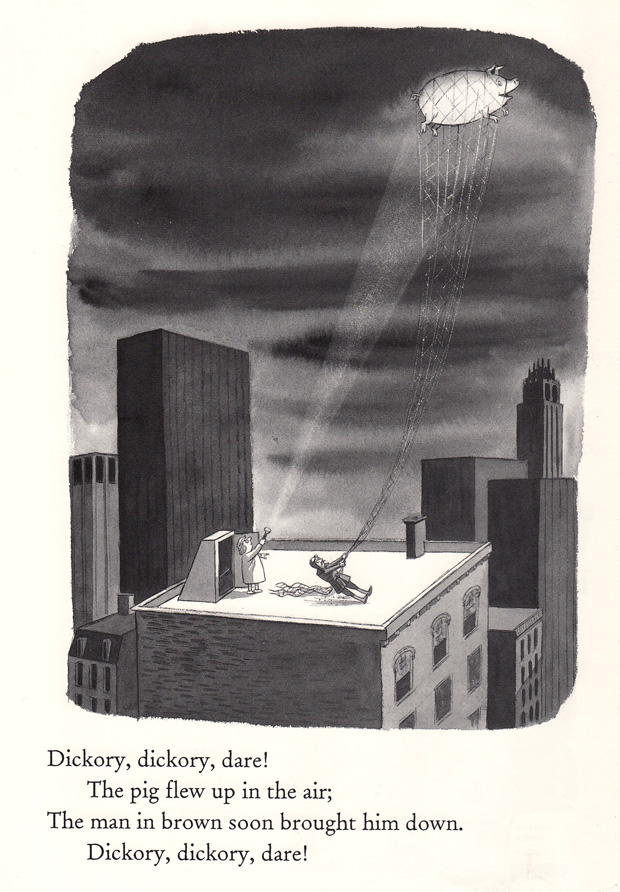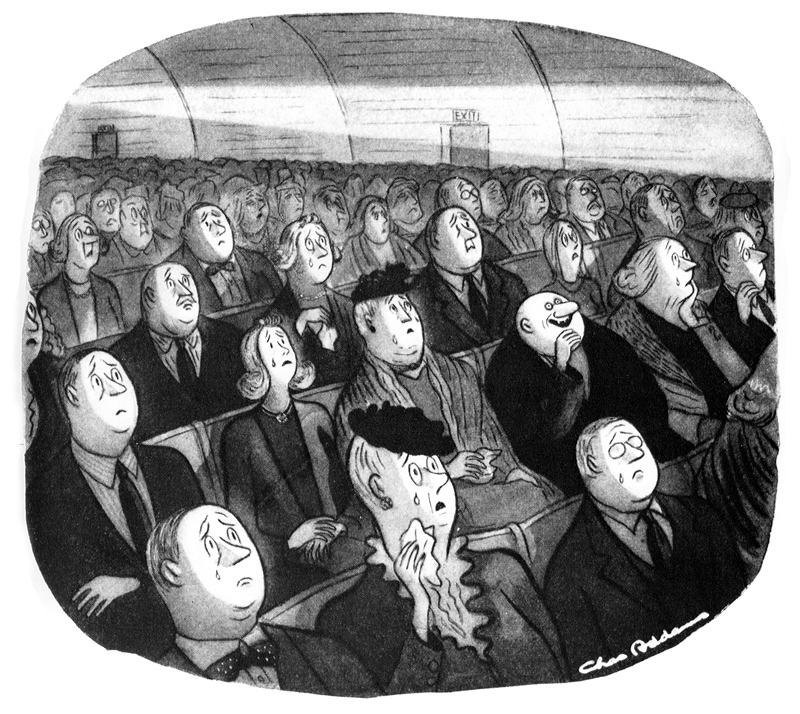Maria Popova posts a wonderful selection of cartoons from Charles Addam’s lesser-known book of Mother Goose rhymes from 1967. Such good stuff, and fun to imagine the crossovers between the classic grim nursery rhymes and his own macabre sense of humor, juxtaposed with his mid-century New York City skylines and deadpan-faced characters.
Tag: charles addams
-
Charles Addams Mother Goose

-
A Gomez by Any Other Name
Back of the Cereal Box takes a very brief look into why the patriarch of the Addams Family is named “Gomez” (spoiler: it was either that or “Repelli”, Charles Addams’ two top picks, and the cartoonist let John Astin decide). For the record, I like that he has a relatively normal name – it helps offset the other family members’ odd / jokey names.
Something I’d always wondered about: Why do all of the members of the Addams family have names that are sinister in one way or another except Gomez? Dark associations of Morticia, Fester, Cousin Itt, Thing and Lurch’s names are obvious. Wednesday gets her name from the line in the “Monday’s Child” poem — “Wednesday’s child is full of woe” — and Pugsley’s seems like a play on pugnacious or something thereabouts. But why should Gomez get a fairly normal name? A surname for a first name is hardly sinister.
-
Uncle Fester Laughing in Theater

The New York Times has up a nice review of the new Charles Addams exhibit at the Museum of the City of New York:
The city street is dark and deserted. The buildings are empty. There are no witnesses. A lone man carrying a briefcase, after a long day at the office perhaps, approaches a subway staircase. Out of the subterranean gloom, a giant human hand protrudes, its index finger beckoning the office worker, inviting him into the depths. His eyes are wide with astonishment, his face showing the hint of a grin, as if the bizarre, illicit invitation were not entirely unwelcome. […]
Above is my personal favorite Addams cartoon, perhaps one of my favorite cartoons of all time. His drawings are often cited as finding their humor and inspiration in the macabre — I think their lasting appeal comes more from his ability to find joy in laughing at and rejecting the bleakness of modern life.
